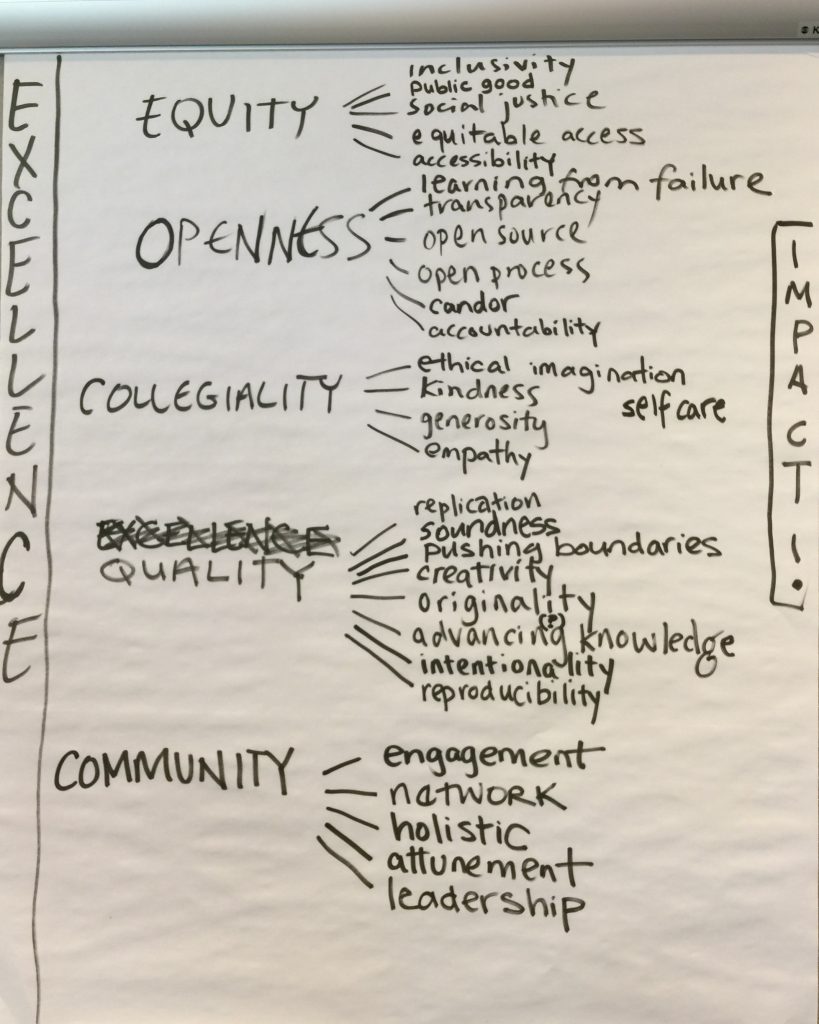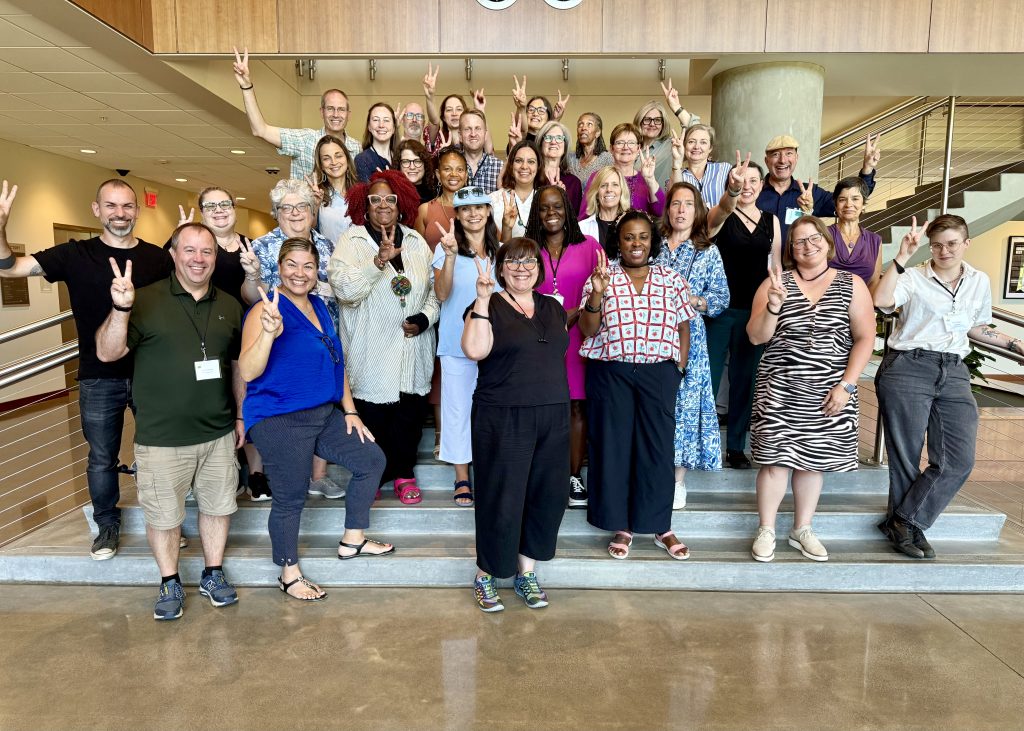Before last week’s inaugural meeting of the Values Enacted Leadership Institute (VELI) fades too far into memory, let me pause for a moment to capture the trace of a few reflections. They circle around the question of excellence that has haunted the HuMetricsHSS Initiative in productive ways from the beginning. Back in 2016, when we first began to advocate for a shift from metrics to values, the HuMetrics team returned again and again to the value of quality in its relation to “excellence,” an idea that we found to be all-too abstract.
The question of excellence emerged repeatedly last week during the inaugural meeting of the Values Enacted Leadership Institute. So, I went deep into the HuMetrics archives to find this image of one of our earliest efforts to think through the meaning of excellence.
Reflecting back on this 2016 articulation of the HuMetrics values framework, we replaced the term “excellence” at the value level with “quality,” turning “excellence” into an expression of how practiced values create meaningful impact. While we might not have grasped the full implication of this early articulation at the time, for the HuMetricsHSS initiative, the “impact” named here has come to point to our efforts to change the academy through value-enacted practice—VELI being our most ambitious effort to date.

It is also possible to discern in this image the kernel of the argument that will become central to our 2020 article, “The Transformative Power of Values Enacted Scholarship.” There we wrote:
… our approach seeks to ground the meaning of excellence and quality in how well scholarship embodies a shared set of stated values appropriate to a given context and developed in genuine reciprocal dialog.1
Here excellence becomes a set of intellectual and ethical habits by which the values we identify as shared are put into intentional practice in every aspect of the work we are doing. As we argue in the article and seek to develop in our workshops, this approach to academic excellence requires us to shift our focus from products of scholarship to processes of scholarly creativity. This shift in emphasis from product to process enables us to make the values that are enacted in the creative process more legible. It also undermines the tendency to flatten the concept of excellence by reducing it to a set of easily quantifiable products.
What excellence is, on this account, becomes at once more textured and more difficult to identify. One way to understand this richer and more dynamic conception of excellence is to think of it in terms of integrity.
Integrity shows itself in the internal coherence of a product and the activity by which it was created; it expresses itself not only in the way the final product holds itself together, but in the intentional and ethical ways the outcome has been accomplished. Process and product are irreducibly interconnected.
If integrity is an expression of excellence, we must attend to how the values we identify as shared are put into intentional practice at every stage along the way. Only then will the integrity of the process show forth in the integrity of the product.

On July 13, 2025, we welcomed five teams to the University of Oregon, Portland campus for a four-day workshop designed to empower each team to:
- identify the values that would animate their work,
- establish the principles by which those values would be put into practice in their relationships with each other and in the project they hope to advance, and
- deepen their understanding of the power they have as individuals and as a team to accomplish the horizon goals of their projects.
The power of values-enacted work lies in its integrity. The consistency we enact between the values we identify as shared and the practices we embody must be demonstrated and verified at every stage of the process. One of the biggest misconceptions about values-enacted work is that values are too abstract to be much more than empty signifiers. The great secret of values-enacted work lies in the intentionality and the discipline required to specify what each value-term means in a given context and how it will be enacted in the relationships among the creators and show forth in what is created.
Each of the bullet points listed above requires this discipline and intentionality. The Values Enacted Leadership Institute is designed to help participants learn the intellectual and ethical habits that will enable them to infuse the values they care most deeply about into every aspect of their work.
Perhaps it is appropriate, then, to conclude this post with the words of Audre Lorde, who reminds us that:
“It is never easy to demand the most from ourselves, from our lives, from our work. To encourage excellence is to go beyond the encouraged mediocrity of our society … the unintentional are those who do not wish to guide their own destinies”.2
Let us cultivate intentionality and discipline in our work together, so its integrity shows forth as an expression of the excellence to which we aspire.
- Agate, Nicky, Rebecca Kennison, Stacy Konkiel, Christopher P. Long, Jason Rhody, Simone Sacchi, Penelope Weber. “The Transformative Power of Values-Enacted Scholarship.” Humanities and Social Sciences Communications 7, no. 1 (2020): 1. https://doi.org/10.1057/s41599-020-00647-z.
- Lorde, Audre, and Cheryl Clarke. Sister Outsider: Essays and Speeches. Reprint edition. Berkeley, Calif: Crossing Press, 2007, 54.

